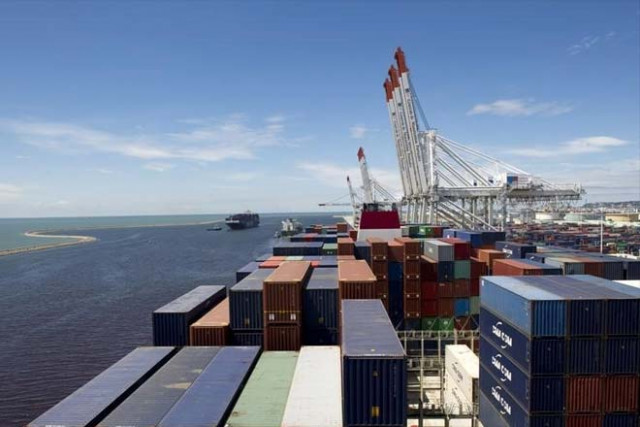US ports brace for surge in imports ahead of new tariffs on China
US importers, retailers and shippers likely to drive a rush to get products before holiday shopping season

US importers, retailers and shippers likely to drive a rush to get products before holiday shopping season. PHOTO: REUTERS
US importers, retailers and shippers are bracing for a new round of punitive duties on Chinese goods set to hit in two steps, September 1 and December 15, likely to drive a rush to get products before the holiday shopping season as they did last year.
The surge in late 2018 helped major US ports notch all-time cargo records. But the rush also raised costs as importers raced to get their items in under the wire, only to be forced to let them sit for exceptionally long periods on ships or in warehouses, where tight capacity meant premium rates.
"Folks didn't need the goods that were coming in. It was simply a financial play to avoid the higher taxation," said Port of Los Angeles executive director Gene Seroka.
Now the ports on the frontline of the grinding US-China trade war, are feeling some deja vu, with Trump's latest tariff announcement tailor-made to produce another year-end holiday rush.
But some experts think the import surge could be more modest this time around.
Trump announced on August 1 his plan to impose 10% tariffs on $300 billion in Chinese goods on September 1 - targeting all products not hit by earlier tariff rounds.
But after an outcry from retailers over the impact on consumers, Trump last week relented and delayed tariffs on more than half the list, sparing toys, cell phones, laptops and other items until December 15.
The new schedule provides a big enough window for shippers to consider frontloading their orders cargo, accelerating their orders to beat the new taxes.
Shippers are asking themselves "Can the factories produce quickly enough, can we advance orders?" Seroka told AFP. "It's a similar conversation to the ones we had last year." Joe Shamie, owner of Delta Enterprises, a New York retailer specialising in cribs, baby gear and children's furniture plans to accelerate orders again this year, although he describes the benefits as marginal.



















COMMENTS
Comments are moderated and generally will be posted if they are on-topic and not abusive.
For more information, please see our Comments FAQ